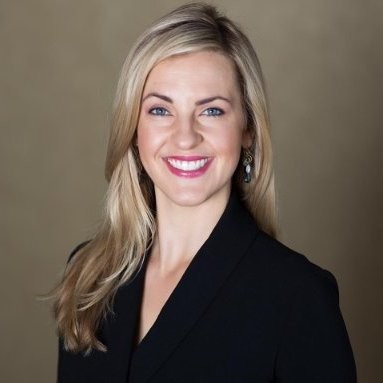Nonprofit support for Black Lives Matter must go beyond statements. It requires ongoing work to dismantle inequity, amplify Black voices, and invest in communities historically marginalized. In this post, Lindsay reflects on how the sector can act with intention, use privilege for good, and lead with love, accountability, and courage. Lindsay sits down with her long-time friends Quentin Wheeler-Bell and Liza Fox to address the Black Lives Matter movement and social inequality.
Subscribe on Apple Podcasts, rate and review.
Racism Is Just the Tip of the Iceberg
“If we’re not paying attention to the systemic problems that are placing people in these situations to both be the victimizer as well as the victim, then we’re missing the point.” Share on X — Quentin Wheeler-Bell
“A lot of the issues we’re talking about can be affected by local leadership. If we focus on voting people into the local government power structure, we can start making some changes.” Share on X — Liza Fox
Seeing the Full Picture
America is undergoing a social reckoning. The Black Lives Matter movement and the tragic murder of George Floyd have captured global attention, but the problem runs much deeper. Racism is only one visible layer of a much larger and more complex system.
If we are truly committed to building a community for good, we must look beyond surface-level issues. We must ask harder questions, explore uncomfortable truths, and acknowledge the systemic failures that create cycles of harm—for both victims and perpetrators.
Why This Conversation Matters
What can each of us do to support civil rights and social justice? How do we move from outrage to action?
In this episode, I’m joined by two long-time friends—Quentin Wheeler-Bell and Liza Fox—to unpack these questions and more. Together, we explore the deeper roots of inequality and discuss what real, lasting change might look like.
Meet the Voices Behind the Dialogue
Quentin Wheeler-Bell is an Assistant Professor at Indiana University, specializing in educational leadership and civic justice. His work focuses on radical, transformative approaches to education as a tool for equity.
Liza Fox brings years of experience in public policy, activism, and international affairs. Today, she leads Elemeno, a community-focused business that nurtures local leadership and social change.
The three of us—along with our beloved friend Grant Wylie (to whom this episode is dedicated)—met in college. We’ve spent countless nights in deep, challenging conversations about race, religion, power, and justice. This episode continues those conversations publicly.
What Is BLM Really Fighting For?
While police reform and racial equity are central issues, the Black Lives Matter movement speaks to a broader call for systemic change—including economic justice, housing equality, health access, and the redistribution of power and resources.
True equity goes beyond diversity initiatives or cultural representation. It requires rethinking how we govern, educate, invest, and care for one another—especially in a system where the rich grow richer, and the vulnerable are left behind.
Even within law enforcement, the system is failing. Many officers face mental health strain, inadequate training, and institutional pressures. If we don’t change the structure, we can’t expect different outcomes.
Where Do We Go from Here?
In this episode, we bring together diverse perspectives to reflect on:
How racism connects to larger systems of inequality
The role of education and local government in driving change
Why philanthropy and community organizing must go hand in hand
How white allies can step up with humility and purpose
If awareness leads to dialogue, and dialogue leads to action, how do we ensure our actions lead to transformation?
Turning Awareness into Action
Change begins with acknowledgment. We must see people fully—as human beings first—and engage with openness, curiosity, and compassion.
We may not be able to rewrite history, but we can shape what comes next. That starts with listening, learning, and committing to real work. Unity and kindness are not soft ideals; they are the foundation for justice.
Let’s bring those values into every space we occupy—our workplaces, schools, places of worship, and circles of influence.
Key Takeaways:
- (04:12) – The importance of validating others’ perspectives and experiences, and opening the dialogue about day-to-day life situations for minorities.
- (17:41) – The systemic problems that are contributing to national inequality, the need for political education, and how we can improve our systems with our votes and awareness.
- (39:59) – How privilege gets in the way of empathy, the normalization of classism, and how the collective awareness of injustice and violence today has given birth to a more united and loving generation.
Connect with Quentin and Liza
Liza: Elemeno
Quentin: Quentin Wheeler-Bell: : Directory: About
Episode Resources
Born A Crime by Trevor Noah
Welcome to Racial Equity Tools • Racial Equity Tools
When White Women Cry: How White Women’s Tears Oppress Women of Coloy
💡 Learn how we build equity into every aspect of strategy and service. Visit our website for insights on inclusive leadership and action-oriented change.







